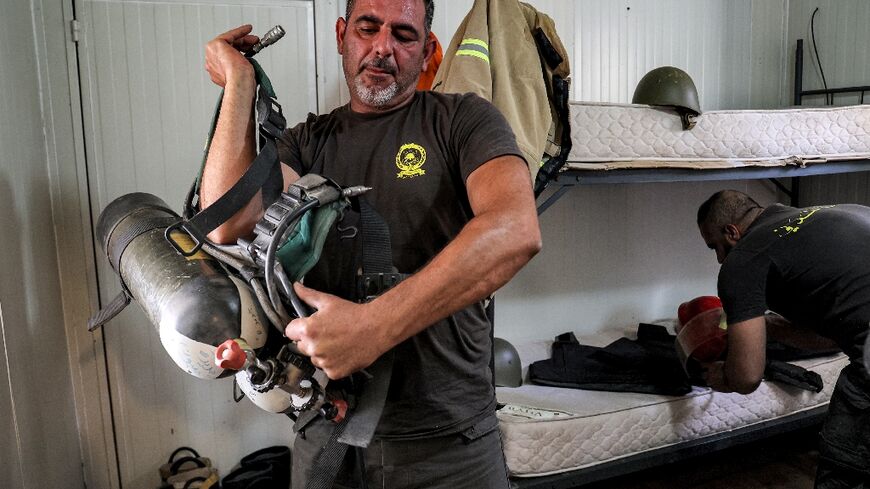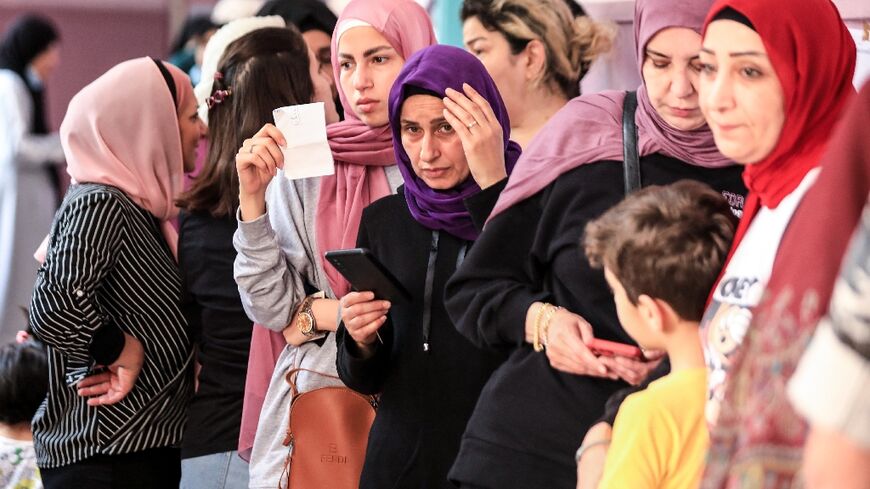Cash-strapped Lebanon struggles to turn lights on for polling day

Lebanon's electricity company is charging $16 million to supply power on the day of the May 15 parliamentary polls, a sum that exceeds the overall election budget by nearly 30 percent, the interior minister said.
Holding credible elections is one of the main steps Lebanon's major donors are insisting on to deliver more assistance to the country, which is mired in a deep financial crisis fuelled by endemic corruption.
The state-owned Electricite du Liban (EDL) presented a quote of $16 million to the government, which is trying to provide just half a day's worth of power to polling stations for the critical vote.
"I held several meetings with EDL, which apparently couldn't provide electricity except at a very high cost," Interior Minister Bassam Mawlawi said.
"The entire elections, at home and abroad, don't cost this much," Mawlawi said, saying his total budget for the vote was capped at $12.5 million.
Mawlawi was adamant the government was working for the polls to go ahead as scheduled, despite persistent rumours they could be called off.
Lebanon, grappling with an unprecedented economic crisis since 2019, and which defaulted on its debt in March 2020, has suffered from severe power shortages for nearly a year -- largely because the government can't afford fuel for power stations.
Power cuts last up to 22 hours a day in most regions, forcing many to rely on expensive generator subscriptions to keep the lights on.
The international community has long demanded a complete overhaul of Lebanon's loss-making electricity sector -- which has cost the government more than $40 billion since the end of the 1975-1990 civil war -- as one of the basic conditions to disburse billions of dollars in desperately needed financial support.
EDL had asked for its payment in cash, Mawlawi said.
- 'Can't rely on the state' -
Mawlawi said the government may turn to private generators to power voting centres, which will need electricity to light the room at night when the votes are counted immediately after polls close.
"I can't rely on the state because despite the high cost demanded, EDL can't guarantee solid results... which may lead to a sudden blackout," the interior minister said.
"The issue of electricity is the biggest problem facing Lebanon... but we will be able to solve it for the day of elections," he added.
Lebanon's energy crisis is just one of its many economic woes, with the currency having lost more than 90 percent of its value.
Most of Lebanon's population lives below the poverty line.
Power outages mean streets are dark at night and surveillance cameras are effectively obsolete, leading to a spike in certain types of crime, Mawlawi said, who cited deepening poverty as another driving force.
Interior ministry figures show armed robberies surged by 135 percent in 2021 compared with the previous year, and car theft increased by nearly a quarter over the same period.
At the same time, Lebanon's security forces have been weakened because officers have quit to look for other work, since their salary barely covers enough to buy basic food for a family.
At least 478 security officers working for Internal Security Forces or the General Security Agency have quit ranks since the start of the country's crisis, documents provided by the ministry showed.
"There is a problem," Mawlawi told AFP.
But "the number of those defecting is not large. We should not exaggerate the problem," he added.








